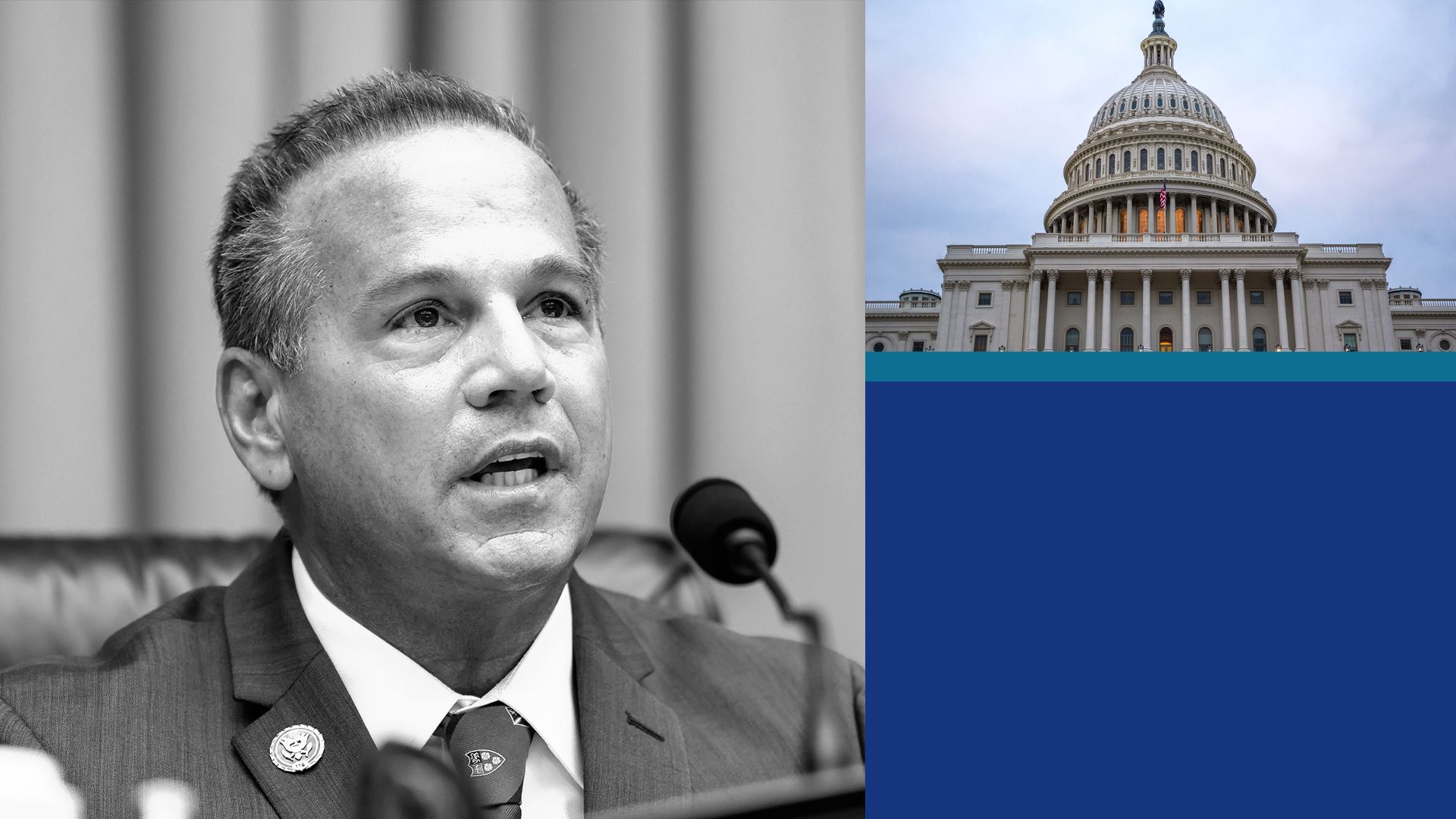Plus: Scoop: McCarthy hires top Trump official | Sunday, March 21, 2021
| | | | | | | Presented By Facebook | | | | Axios Sneak Peek | | By Alayna Treene, Hans Nichols and Kadia Goba ·Mar 21, 2021 | | Welcome back to Sneak. The House is out this week while members hold a virtual committee work period, but the Senate will be in. ⚡ Situational Awareness: Defense Secretary Lloyd Austin made an unannounced trip to Afghanistan, the first Biden administration Cabinet official to do so. 📚 Worthy of your time: "Jared Golden (D-Maine) bucks fellow Democrats while fighting the system," by Colin Woodard of the Portland Press Herald. Today's newsletter — edited by Glen Johnson — is 510 words, a 2-minute read. | | | | | | 1 big thing: Inside the Democrats' strategy to bombard Big Tech |  | | | Photo illustration: Annelise Capossela/Axios. Photo: Graeme Jennings-Pool/Getty Images | | | | The powerful Democrat overseeing antitrust legislation wants to hit Big Tech with the legislative equivalent of a swarm of drones rather than a single, hulking battleship that would be simpler to defeat, Axios' Jonathan Swan and Margaret Harding McGill report. Driving the news: In an interview with Axios on Sunday, Rep. David Cicilline (D-R.I.) said he didn't want to give the major technology companies and their armies of lobbyists the easy target of a massive antitrust bill. Between the lines: The way Cicilline sees it, this small-target strategy achieves two goals: - He has a better chance of finding common ground between Democrats and Republicans on more narrowly targeted issues.
- And he makes it harder for Amazon, Facebook, Apple and Google to mobilize quickly against reforms they don't like.
Go deeper. |     | | | | | | 2. Republicans planning to target COVID relief's add-ons |  | | | Illustration: Annelise Capossela/Axios | | | | Republicans are looking for ways to attack President Biden's COVID-19 stimulus despite its huge popularity. One idea they're testing: target add-ons like an $86 billion pension plan bailout, Axios' Alayna Treene reports. Why it matters: Republicans privately acknowledge they failed to successfully define the legislation before it passed. Now the "American Rescue Plan" is becoming a law Americans identify as giving them $1,400 checks and supercharging the economy. Besides the pension plan item, key provisions the operatives are homing in on: - Stimulus checks being sent to inmates and some undocumented immigrants, even though immigrants without Social Security numbers are not eligible for stimulus checks. Go deeper on checks for inmates.
- Additional aid that went to states and governors despite the fact in some cases their revenue actually increased during the pandemic.
Go deeper. |     | | | | | | 3. Scoop: McCarthy hires Trump official to run political operation |  | | | Kevin McCarthy. Photo: Kent Nishimura / Los Angeles Times via Getty Images | | | | House Minority Leader Kevin McCarthy has hired former President Trump's White House political director Brian Jack to lead his own political operation, Alayna also has learned. Why it matters: The move to bring on Jack underscores McCarthy's strategy of keeping Trump and his orbit close as Republicans seek to retake the House majority in 2022 — and McCarthy achieves his personal goal of becoming speaker. The backdrop: Jack is one of a small group that worked for Trump through his entire journey — from the golden escalator ride down to declare his candidacy to his final flight on Air Force One. - McCarthy (R-Calif.) met Jack through Trump and sees him as an asset for fundraising and recruitment, as well as strategy.
- Jack remains connected to Trump, who viewed him as his go-to guy for congressional elections during the last cycle.
Go deeper. |     | | | | | | A message from Facebook | | It's time to update internet regulations | | |  | | | | The internet has changed a lot in the 25 years since lawmakers last passed comprehensive internet regulations. It's time for an update. See how we're making progress on key issues and why we support updated regulations to set clear rules for addressing today's toughest challenges. | | | | | | 4. Top Biden aides cashed in on Wall Street after Obama service |  | | | Photo illustration: Annelise Capossela/Axios. Photos: Andrew Harrer/Bloomberg via Getty Images, Andrew Harrer/Bloomberg via Getty Images | | | | Two of Biden's top economic and foreign policy advisers made hefty Wall Street salaries during the Trump administration after working for President Obama, according to new financial disclosure forms reviewed by Axios' Orion Rummler, Hans Nichols and Lachlan Markey. The details: Brian Deese, director of the National Economic Council, was paid $2.3 million in salary last year to serve as BlackRock's head of sustainable investing. And deputy national security adviser Jonathan Finer was paid nearly $730,000 as a senior vice president of Warburg Pincus. - Deese also appeared to earn another $2.4 million from his vested restricted shares in the company. He had served as one of Obama's senior advisers and helped negotiate the 2015 Paris climate accord.
- And Finer received another $430,000 in carried interest — the profits earned by managers of venture capital, hedge and private equity funds. He had served previously as State Department chief of staff and director of policy planning.
They were not alone in finding riches in the private sector during Donald Trump's presidency. Go deeper. |     | | | | | | 5. Pic du jour |  | | | Photo: Tasos Katopodis/Getty Images | | | | A worker on Saturday removes some of the razor wire that topped security fencing installed after the Jan. 6 U.S. Capitol attack. The public will once again gain access to the Capitol grounds as the perimeter fencing comes down. |     | | | | | | A message from Facebook | | Facebook supports updated internet regulations | | |  | | | | It's been 25 years since comprehensive internet regulations passed. But a lot has changed since 1996. See how we're taking action and why we support updated regulations to address today's toughest challenges — protecting privacy, fighting misinformation, reforming Section 230, and more. | | | | 👍 Thanks for starting this new week out with Sneak Peek. And here's our daily reminder you can sign up for Sneak or any of Axios' other free newsletters through this link. | | | | Axios thanks our partners for supporting our newsletters.
Sponsorship has no influence on editorial content. Axios, 3100 Clarendon Blvd, Suite 1300, Arlington VA 22201 | | | You received this email because you signed up for newsletters from Axios.
Change your preferences or unsubscribe here. | | | Was this email forwarded to you?
Sign up now to get Axios in your inbox. | | | | Follow Axios on social media:    | | | | | |








No comments:
Post a Comment